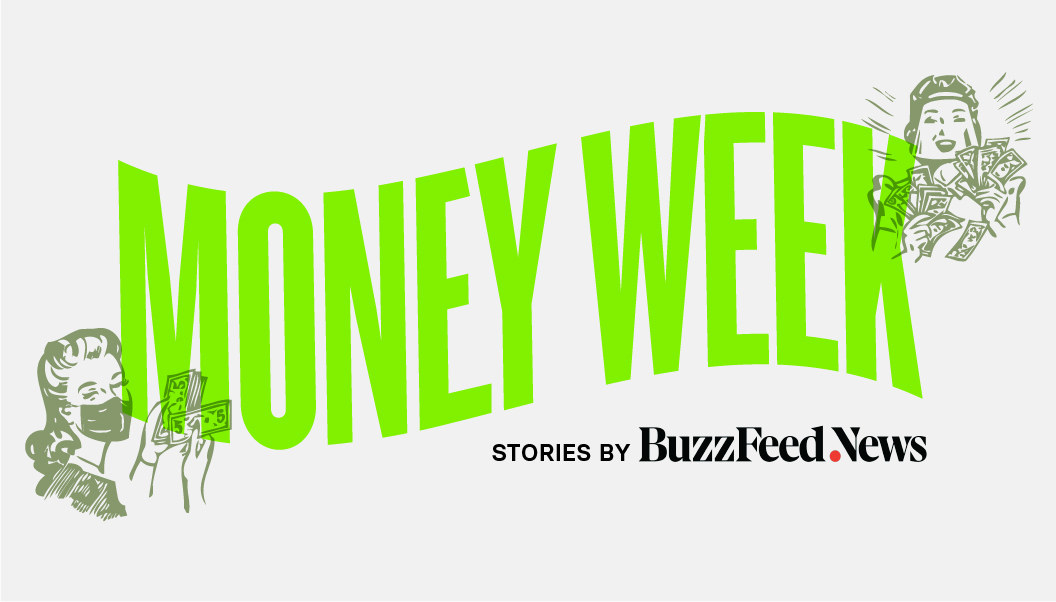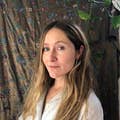
Millions of people suddenly, if temporarily, found themselves freed of hundreds of dollars in monthly payments over the past year due to pandemic-related federal student loan forbearance. For many, it’s been their first taste of financial comfort since borrowing money to fund their education.
For the 43 million Americans with federal student loan debt, like myself, the reprieve from making monthly payments has not only afforded them small luxuries — a meal out, unnecessary personal care items, a new couch — but also meaningfully improved their quality of life. It has helped some people get closer to milestones that otherwise wouldn't have been possible for years: paying off credit card and medical debt, saving for a down payment on a home, or starting a family.
Forbearance, which began in March 2020, is set to end in September, although that could be extended. Borrowers are now anxiously looking to President Joe Biden and Congress to see how long their debt-free existence will last — and to plan for what happens next. I’m personally not sure what will happen when deferment ends and my $750 monthly loan payments resume. Since the pandemic began, I moved into an apartment with my boyfriend and paid for a hefty and unexpected medical bill. We decided to get a used car, for which we now have monthly payments. I don’t know if I can afford the life I have now when loan forbearance ends, and that thought terrifies me.
BuzzFeed News asked readers how student loan forbearance has impacted their life. We received more than 1,400 responses from people experiencing temporary relief as well as anxiety, anger, and confusion over a year since payments were paused. Here are some of their stories, which have been edited for clarity and length.
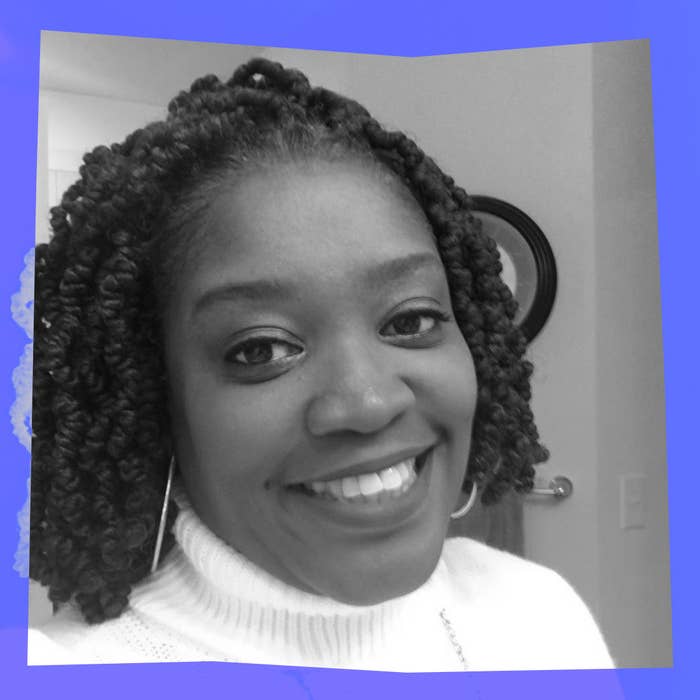
Laura Bembry
Age 46, Suffolk, Virginia
Owes $127,000
I got my bachelor’s degree from Old Dominion University and my master’s from Troy. When I finished my education in 2003, I owed about $80,000 through the FFEL program. I was only making close to minimum wage, and I couldn't afford to start repaying my loans. I used the options I had at the time — forbearance and deferment. But even then, those loans were still accruing interest. When I finally started repaying, I had to pay $750 per month.
I had to file for Chapter 7 bankruptcy in 2013 and couldn’t afford the mortgage for my townhome anymore. I moved into an apartment, which allowed me to repay my student loans and pay for a roof over my head. I have paid down $60,000 in the last five years. You would think I wasn't that far from being debt-free, but because of interest I still owe $127,000.
I was able to consolidate my loans during the pandemic. While my interest rate is still 6.385%, I can now take advantage of the CARES Act deferment until forbearance ends. I am still living paycheck to paycheck, but deferment has allowed me to put a little aside in savings for emergencies for the first time in a long time. After deferment ends, things will still be tight and I will have no more money going into savings.
There's no way to get relief. Calculating everything, I'll be paying back $250,000 worth of interest on a loan that was only $80,000 to begin with. When I file my taxes, I don't get any money back from the interest. Now they say I make too much money to qualify for student loan deductions on my taxes. How am I given a good, fair shake to become debt-free? When I think about goals to become debt-free, I never even consider being able to pay off my student loan debt. I have five nieces and nephews who are going to be graduating this year. I've talked to them about doing community college and then going off to university after a few years. In the long run, it's just not worth it. I wish I had been more educated about it.
When I filed for bankruptcy, I couldn't include my student loans. My attorneys said the judge is not going to forgive or include them. I would hope that the forbearance continues, because I'm responsible for paying so much interest. If Biden forgave $50,000, I would still have a big chunk to repay, but it wouldn't be as massive as it is now. The fact that it's currently in forbearance and not gaining more interest helps my household. My household always has to accommodate my student loan payments. It caused issues when we were trying to buy a home; it causes issues everywhere.
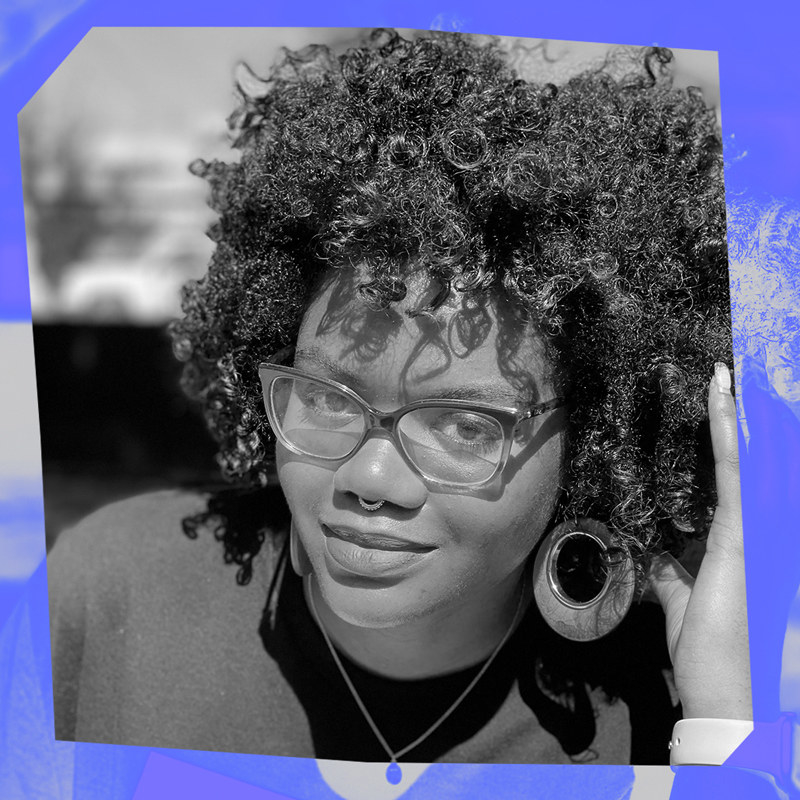
Autumn Cottrell
Age 26, Phoenix, Arizona
Owes $45,000
Since loan forbearance began, I was able to move out to a nice area on my own and begin furnishing my apartment. I can save and invest — but I know that as long as I have student loans, I will never be able to afford a home on my own.
I'm a Black woman in Phoenix, and the housing market is outrageous. It's not like I live somewhere extravagant. I'm constantly stressed about my loans and checking the news to see if there is any progress on cancellation. My peers make the most ignorant statements to me about money and I have to explain: I'm a Black woman, so, one, I'm not getting paid as much as you; two, I had to go into debt for my education; three, that debt is looming over me every day and influences every decision I make; and four, I have family to consider.
Once forbearance ends, I don't know if I'll be able to afford my current place. I have been pushing myself through incredibly stressful promotions to make sure I can swing my loan payment in my monthly budget. I've also been saving to pay off a lump sum, but that would decrease my emergency savings significantly.
I've always been an advocate for loan cancellation. It should not have cost me $50,000 to get the skills and knowledge I have. I used to fight on the phone with my financial aid offices for more grants because this is unjust and a scam.
I check the news every day. I just read an article that asked, “Should you change, or should you plan for the future of student loans getting canceled?” I’ve followed Elizabeth Warren for a long time since she seems like one of the only people who cares about student debt. Black Americans disproportionately have more student debt, and it makes it harder for us to get along. It's a constant stressor.
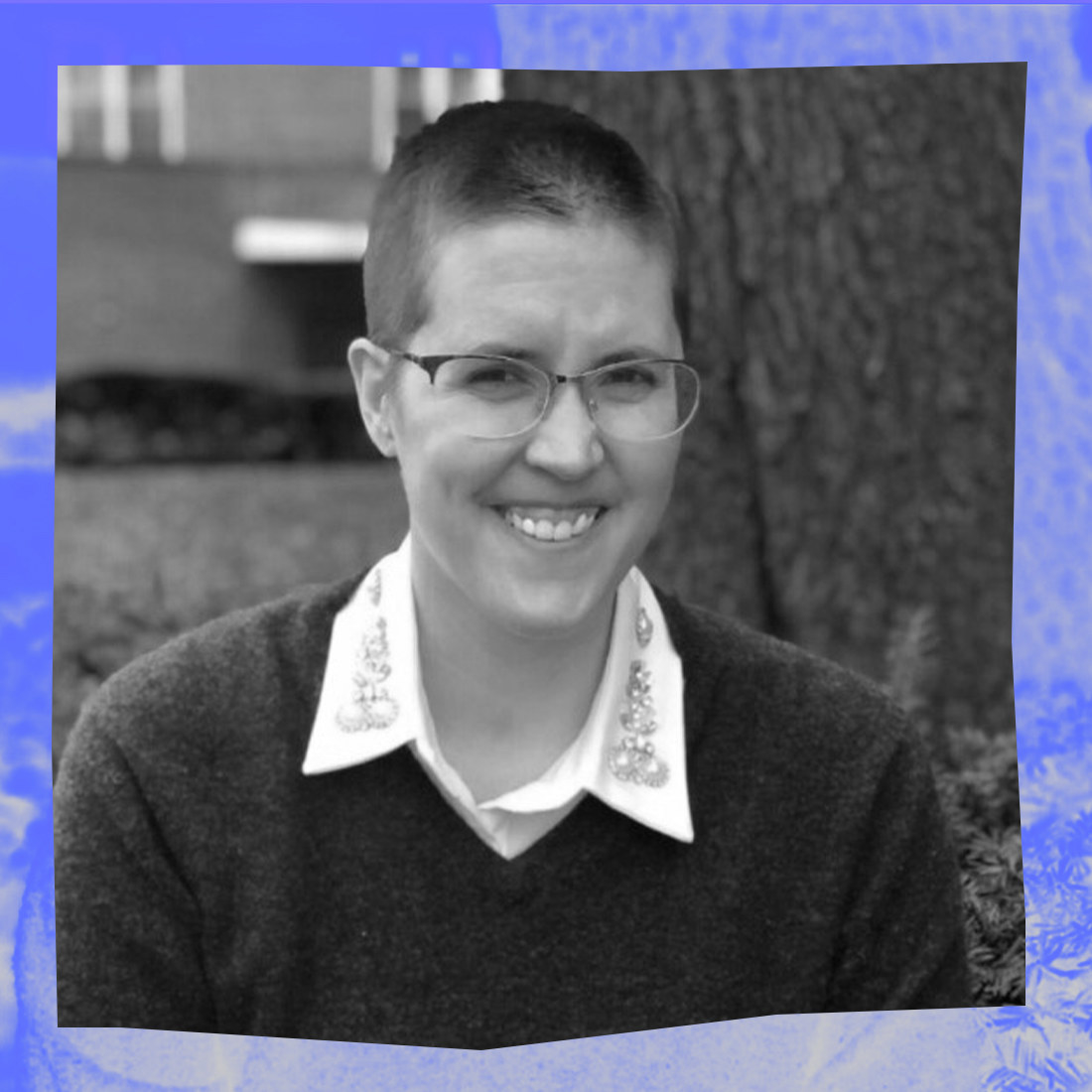
Lauren May
Age 32, Queens, New York
Owes $34,124.33
In the pandemic, my federal loans were paused, but my private student loans weren't. I've been throwing every dollar I can at my private loans to try to finish them off. Because of this effort, I was able to pay off $20,000 in private student loans in a year. I took this approach with the hope of some kind of federal student loan forgiveness on the horizon but with the awareness that these private loans weren't going anywhere.
I have been a social worker for six years, and I work with the homeless. But my office is located in lower Manhattan, and because the NYS Licensed Social Worker Loan Forgiveness Program factors in the location of your employer, I’m ineligible for $26,000 of forgiveness — even though I live in Forest Hills, Queens.
If I can reach my goal of paying off my private loans before forbearance ends, I will be able to double the amount that was previously going toward my federal loans. Before forbearance, it was $600 to private, $600 to federal, which will then become $1,200 to federal. My husband and I have held off having kids. We live in a converted doctor’s office that is 400 square feet and way below market rent for our neighborhood. A splurge for us is going out and splitting a cookie; one each is too extravagant. It feels like a massive hill that we have been climbing for years.
The last year hasn't changed my perception much, except to maybe amplify my disgust with the system. At the very least, people earning degrees and training in jobs and fields that this country desperately needs or will need in the future shouldn't pay a dime to go to school. It's made me angry that it takes a massive economic downturn to get any help from the government.
No one talked to me about what it would mean to have these loans when I was 18. They were just part of the piles of forms to be signed and submitted as part of registration and enrollment. My freshman year in college, we sat down with a really nice financial administrator at the school, and they handed me a big stack of papers. It felt like no big deal. Then when I graduated and went to go pick up my graduation ticket, I broke down into tears when I learned how much I owed. I wish student loan education were a requirement for high school graduation. My mom took out $7,000 more than I needed that first year I was in college; she thought of it as “just in case” money. I shudder to think about that money accumulated with interest. I think community college and state school should be free.
I am so insanely lucky to have kept my job and been able to make this huge financial dent in my loans when so many people are drowning. I dream of winning the Powerball and making giant "Robert Smith at Morehouse"–level donations and paying for dozens of students to go to college for free, but then I think how messed up that is. Financial freedom shouldn't be a fantasy in America.
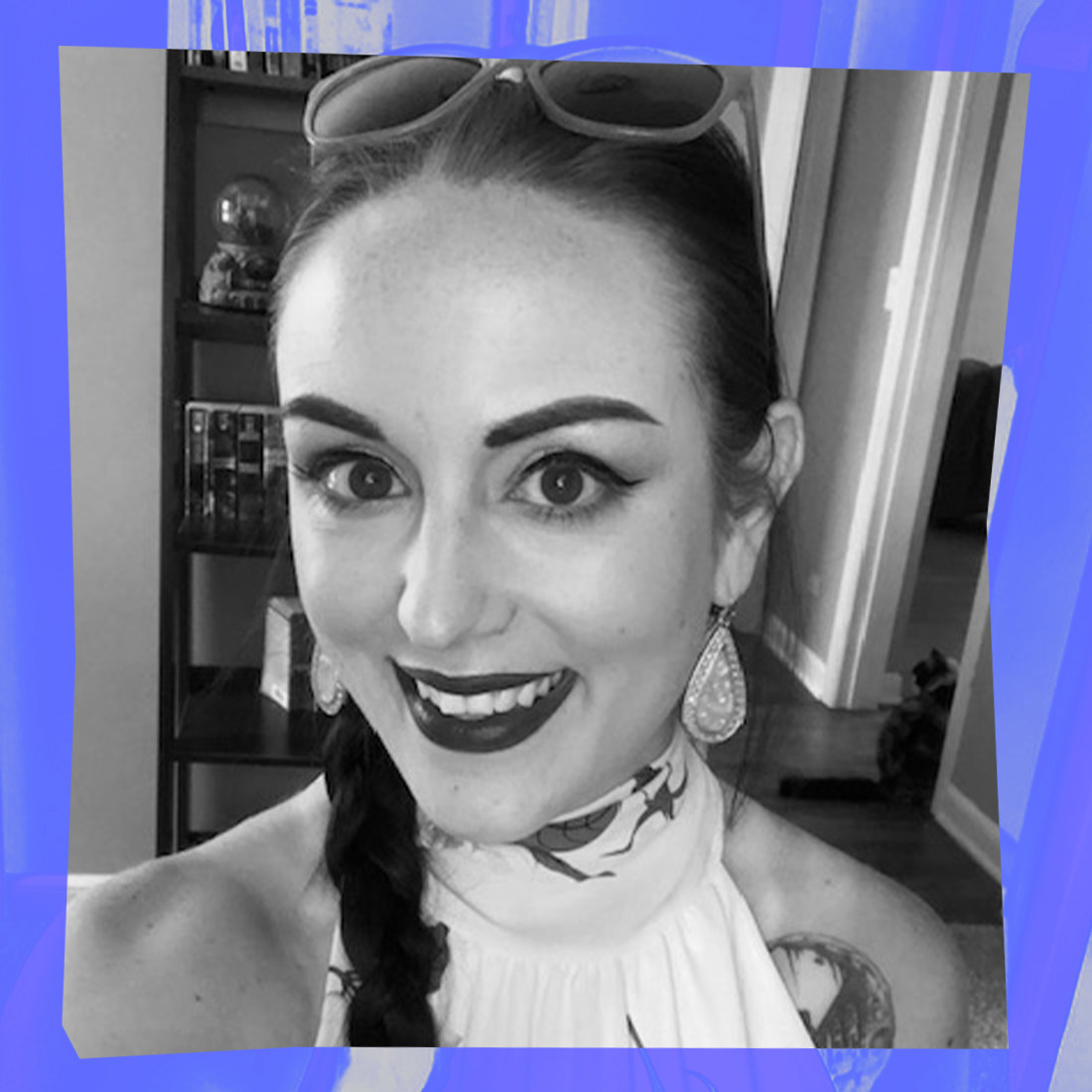
Ally Gritti
Age 31, Minneapolis, Minnesota
Owes $41,279.30
I’m a middle school reading specialist. I’m going to be 32 soon. Five family members of mine have had ALS. After my mom died in 2019 [due to complications from ALS], we wanted to get started right away to try to have a kid. I decided to take the genetic test to see if I have the gene that causes ALS. I really had to work myself up to taking it. I started working with a geneticist, and I found out in December 2020 I do have the ALS gene. I have a high-90s percent chance that I will get ALS in my lifetime, which means there is a 50% chance that a child of mine will have ALS.
With IVF, we are going through the entire process and doing genetic testing to ensure I don’t pass this gene on to any future children. Between our personal savings that we’ve been able to save by not having to pay student loans, our HSAs, and a friend who set up a GoFundMe for us, we have been able to save enough money to help us through the IVF process — which is expensive. Without this money, we would have had to put off IVF even longer.
I am very lucky because both my partner and I have kept our jobs throughout the pandemic. Once I need to start paying [loans back] again, I think I’ll be OK; I just don’t think we’ll be able to pay them back very quickly. We would be able to make our base payments — but of course if I am pregnant, we would be looking at paying for daycare, so who knows. We have been planning for a family for a while and specifically bought a house that didn’t have a crazy mortgage. The biggest financial stressor would be our loans if no forgiveness is given.
I now realize that the burden of these loans should not be placed on individual Americans. The government needs to do something for current loan holders and future and present students. Being strapped with thousands of dollars in student loans is causing people, in my experience, to wait longer to buy houses, have kids, or even just treat themselves.
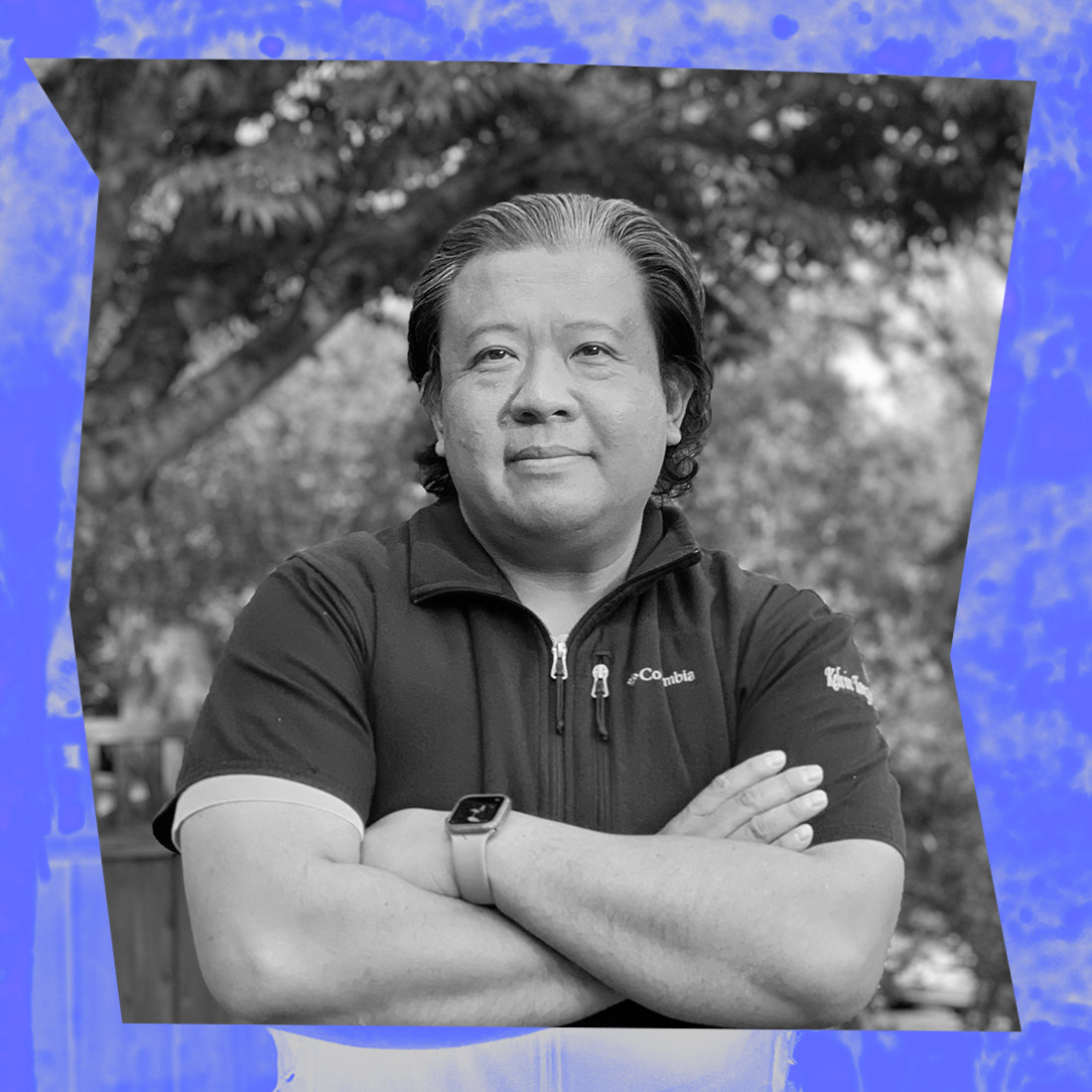
Kelvin Tang
Age 43, Walnut Creek, California
Owes $118,000
For undergrad, I had no student loans. I got a full scholarship to UCLA. But I got my doctorate up in Oregon, and that was expensive — $40,000 per year. When I went into residency, you get to try out different places, and I was making $24,000 a year that first year of my fellowship. In California, the cost of living is so high. I don’t go golfing every day. I don’t belong to a country club. I work full days, and I’m still struggling. I have three jobs right now. What you pay for student loans comes out of your pay after it’s taxed, and so much of that goes to the interest. For a $700-per-month student loan payment, I need to earn around $1,100 pretax to meet that obligation. And I consider myself lucky with interest. My rate is 2%; I have colleagues whose interest rates are above 7%.
When the pandemic hit, my clinic closed for three months. Now I have that hoarding mentality. I need the basic necessities for my family to be OK, and I need to take advantage of the student loan forbearance. If I don’t pay my student loans now, I’ll pay more later on, but it will be OK. If I don’t pay my mortgage, I’m out of a house. I love what I do. I’m an optometrist. I’ve been working for 17 years. Even if I won the Powerball tomorrow and I paid off my student loans, I would still work here.
But all it would take is another outbreak of some virulent COVID strain and we could all shut down again. This experience has highlighted for me what is important to my family and me on a day-to-day basis. We weren’t living lavishly before or during the pandemic. Everyone in my family still has their health. That’s all that matters to me. Student loans, home payment, and others are just bills. Keep swimming. Make it through one day at a time. It will work out in the end.
My brother and I are also helping my older parents with finances, home payments, and property taxes. My brother went to college and not to grad school afterward, and he does tons better than me. When forbearance ends, there will be less of a chance for me to save and get ahead.
My wife and I have three boys, 10, 8, and 5. We’ve already started talking to them about college and money. When I was at college at UCLA, it was $4,000 a year. Over the past 10 years, it’s almost tripled in price. With the boys, we’re doing our best to save for a 529 plan. My goal is for them to go wherever they want to go, but they need to realize that they need to work hard, too. If they want to major in basket weaving, that’s fine, but they need to realize that they are going to have an income and money to manage themselves. It’s frustrating. You’re taught that to get ahead, you need school, school, then more school. You need money to go to school. So to get ahead, you need to fall behind.
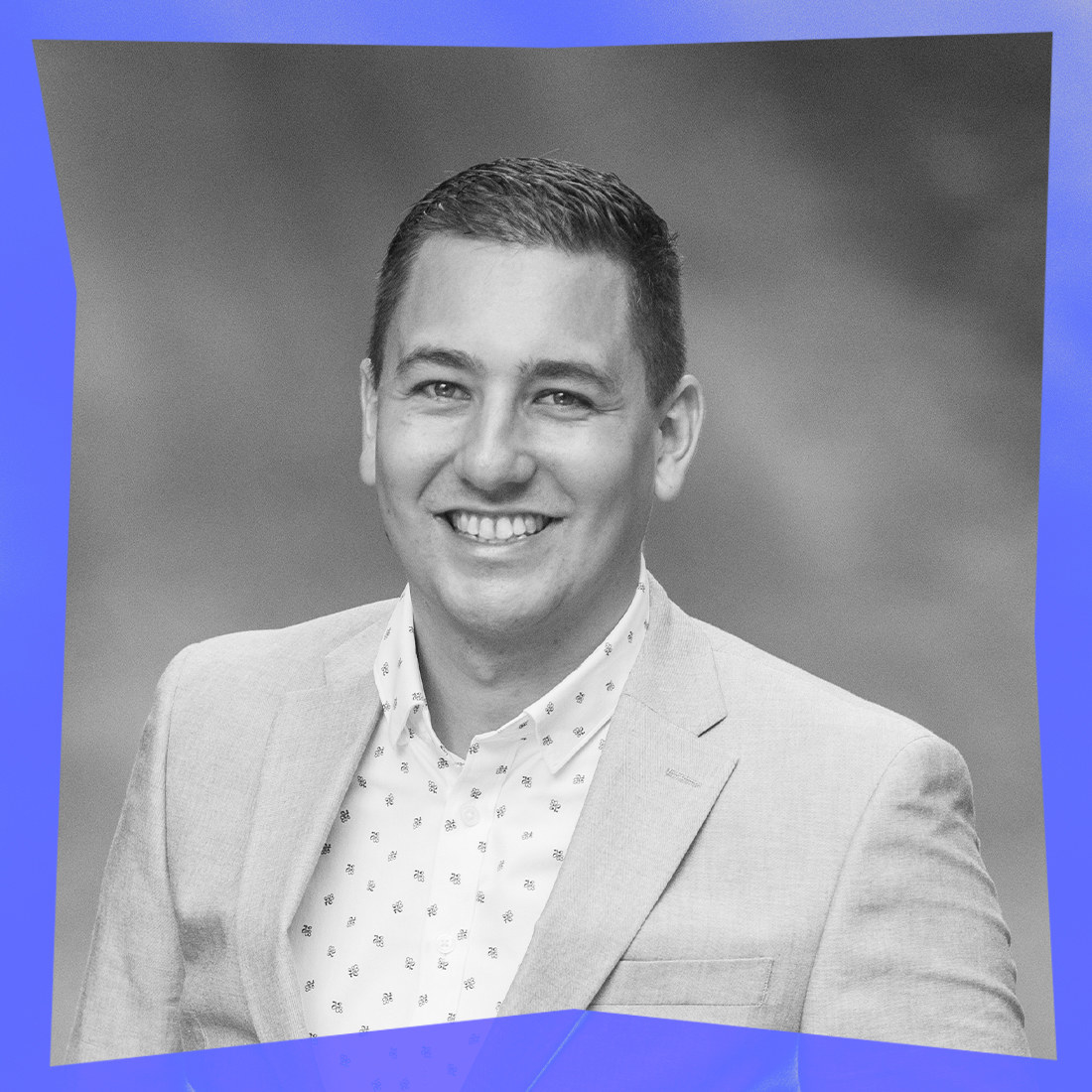
Jonathan Meagher-Zayas
Age 30, Syracuse, New York
Owes $110,000
It’s been 13 months since my husband and I have made student loan payments. We both have graduate degrees, and we consider ourselves pretty privileged, especially for upstate New York, where we live.
We’ve been lucky during this pandemic that we both could work, and my husband got overtime money. With all the extra money from not making our student loan payments, we have been fortunate to save toward a house, where we plan to start our family. The housing market is insane now. Houses are going quickly and realtors and mortgage lenders pressure you to have your financial life in complete order, even in the pandemic. Because we didn’t have to pay student loans, we have been able to save 20% to put down on a house. This is super important for us because, as a queer couple, we already have to anticipate thousands of more dollars to even start our family. As a male same-sex couple, the cost of adoption or surrogacy would be astronomical. We’re moving into a house to be closer to our families to have kids and start a family, and not paying loans is helping us work toward that.
I’m white passing, but I was raised by my single Puerto Rican mom. We were set up worse than some of my other friends were, and then if you want to get ahead, you have to go to college. Most of my fellow Black and brown friends worked through college, unpaid internships, multiple jobs, and they carry most of the student debt. I didn’t inherit any wealth. My grandfather just died and he didn’t leave us any money, because he just didn’t have any.
When I tell other people how much student loan forgiveness would give my husband and I a more equal playing field, they ignore me and tell me education was my choice and my fault. But I look back — I worked while I was in school. I was on SNAP benefits during grad school. I applied for every scholarship I could find. It’s frustrating because you feel like you’re working against a system that says it’s working for you but is working against you.
It’s frustrating that student loan forgiveness is used as a political tool, but there is never any progress made toward it in actuality. My husband and I are both public servants, so we're trying every day to make the community a better place, and we also want the opportunity to be happy in our own lives.
